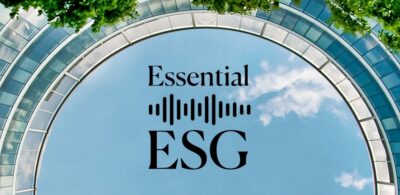‘Ban the bag’ and ‘cash for trash’: Queensland’s new waste reduction and recycling laws
26 June 2017
On 1 July 2018, Queensland will become the latest of a number of Australian States and Territories to introduce both a ban on lightweight plastic bags, and a new beverage container refund scheme.
In recent years, bans on lightweight plastic bags have been implemented in South Australia, the Northern Territory, the Australian Capital Territory and Tasmania, while South Australia, New South Wales and Western Australia all have container deposit schemes.
Queensland Minister for Environment and Heritage Protection Steven Miles introduced the Waste Reduction and Recycling Amendment Bill 2017 into the Legislative Assembly on 14 June 2017, citing Queensland as having one of the lowest recycling rates in Australia.
Ban on lightweight plastic bags
The aim of the ban on lightweight plastic bags is to:
- reduce plastic pollution in the environment; and
- encourage consumers to consider alternatives to single-use plastic bags.
The ban will apply to plastic carry bags with handles that are less than 35 microns in thickness (banned plastic shopping bags). Unlike other States and Territories, Queensland’s ban will also extend to degradable bags. All retailers will be prohibited from giving a banned plastic shopping bag to a person for carrying goods that the retailer sells from the retailer’s premises.
The ban will not apply to:
- other plastic packaging that is not a bag;
- plastic carry bags that are greater than 35 microns in thickness;
- ‘barrier bags’ (plastic bags used to carry unpackaged perishable food such as loose fruit and vegetables, or meat);
- plastic bags not connected with retail (such as ‘dog poo’ bags made available by Councils in some public parks); and
- ‘alternative shopping bags’ which are not banned plastic bags, such as the well-known reusable ‘green bags’ made from non-woven polypropylene.
Similar laws in other States and Territories have resulted in retailers providing thicker plastic carry bags in order to circumvent the ban. As a result, the Queensland legislation will allow for additional types of plastic bag to be banned in the future, if necessary.
The ban is proposed to commence on 1 July 2018 to allow for an information campaign to ensure both community and retailer awareness. Under the Bill, a review of the ban’s effectiveness must commence by 1 October 2020.
Container refund scheme
The new container refund scheme will provide an incentive for beverage containers to be recycled rather than placed into landfill, with a 10 cent refund to be available for beverage containers that are brought to container refund points. The scheme also proposes to introduce ‘reverse vending machines’ that accept containers in exchange for the refund. Refunds may be provided by means other than cash (for example, a token system).
From the commencement of the scheme on 1 July 2018, beverage products will not be able to be sold for consumption in Queensland unless they are:
- listed in a register of approved containers;
- marked with a barcode and refund marking; and
- subject to a ‘container recovery agreement’.
Manufacturers will be required to enter a container recovery agreement, which will ensure recycling arrangements are available for the types of container manufactured, and require that the manufacturer contributes to the cost of refund amounts paid for containers, and the cost of administering the scheme.
Small beverage manufacturers will be protected via limits on the amount of contribution required under a container recovery agreement, although details of the limits have not yet been published.
The scheme is intended to link product life cycle responsibility on the part of manufacturers with opportunities for small community groups and social enterprises to raise funds.
Public Submissions
The Bill has been referred to the Agriculture and Environment Committee, which is inviting public submissions until Monday 3 July 2017. Submissions can be emailed to [email protected].
The Committee is due to report on the Bill by Friday 11 August 2017.
Authors

Partner
Tags
This publication is introductory in nature. Its content is current at the date of publication. It does not constitute legal advice and should not be relied upon as such. You should always obtain legal advice based on your specific circumstances before taking any action relating to matters covered by this publication. Some information may have been obtained from external sources, and we cannot guarantee the accuracy or currency of any such information.



